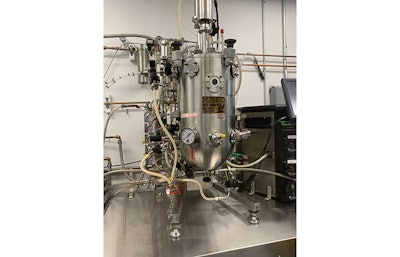
Precision fermentation can be used to produce an animal-free egg protein. The egg substitute can be used for baking.
“Clara Foods is working towards a disruptive advance in food technology by developing real animal proteins without the use of a single animal – starting with the world’s first animal-free egg proteins,” explained Arturo Elizondo, Co-founder & CEO, Clara Foods.
Advocates of alternative proteins – a category that also includes plant-based and cultured meat – say the process is more efficient and sustainable than traditional agriculture.
“More and more consumers are looking to reduce animal-based products, whether it be for health, environmental or ethical reasons,” Elizondo added. “We believe that providing animal-free products will become increasingly valuable and attractive to consumers.”
The global egg substitute market is expected to surpass $1.1 billion by the year 2023, according to supplier intelligence company, IndustryARC. The report cites the rising adoption of veganism and an increased demand for animal-free products as the main factors fueling the 6% estimated market growth between 2018 to 2023.
How it’s made
The process to create an animal-free egg substitute uses yeast engineering and fermentation technologies to insert the sequence of an egg protein into yeast. The mixture is fed plant-based sugars and results in an animal-free egg protein for baking or in other applications where egg white proteins are used.
“Fermentation is a safe, well-established method that has been used to produce beer and wine for centuries,” he said.
“We are continuously exploring new ways to create animal-free proteins that match or exceed the taste, texture and unique culinary functionality of eggs derived from animals. We see the poultry industry – and all of the traditional animal agriculture industry – as key players in evolving our food system.”


















